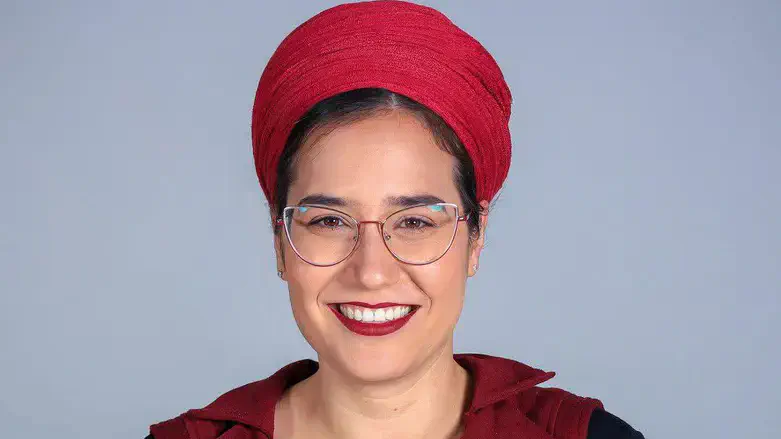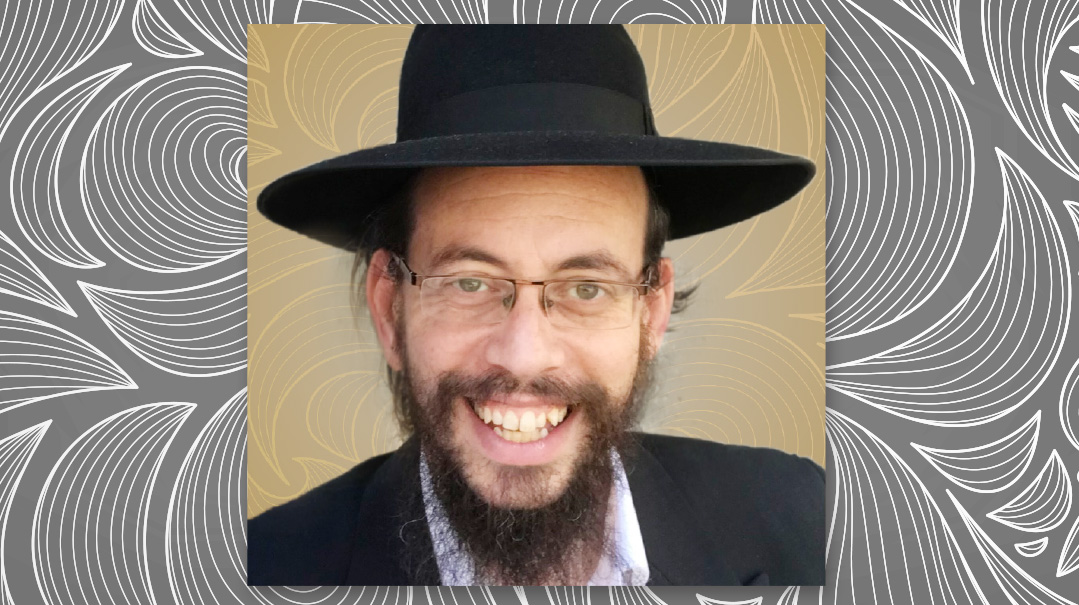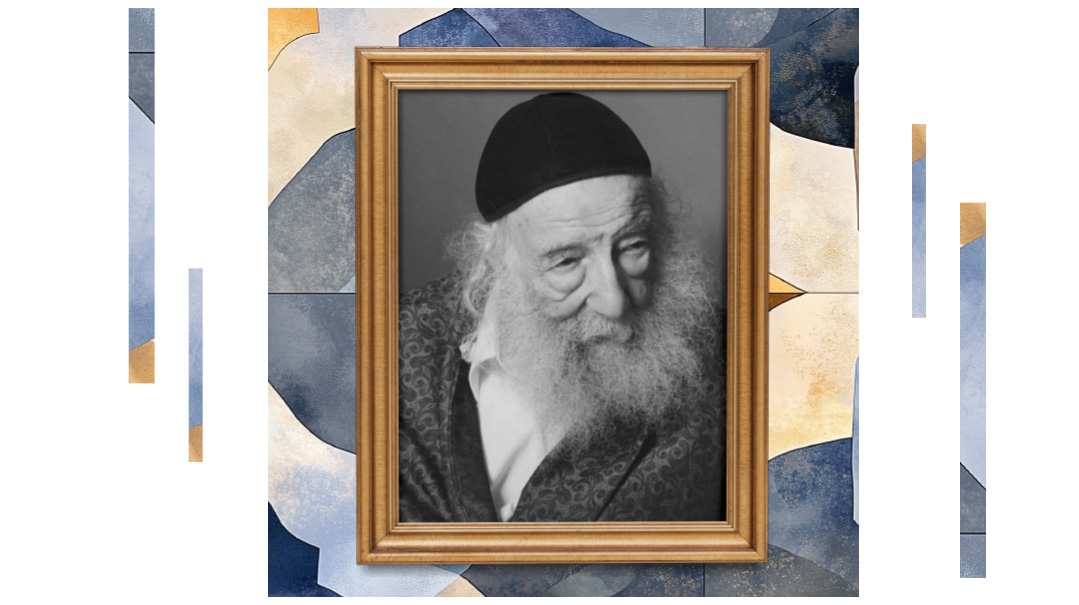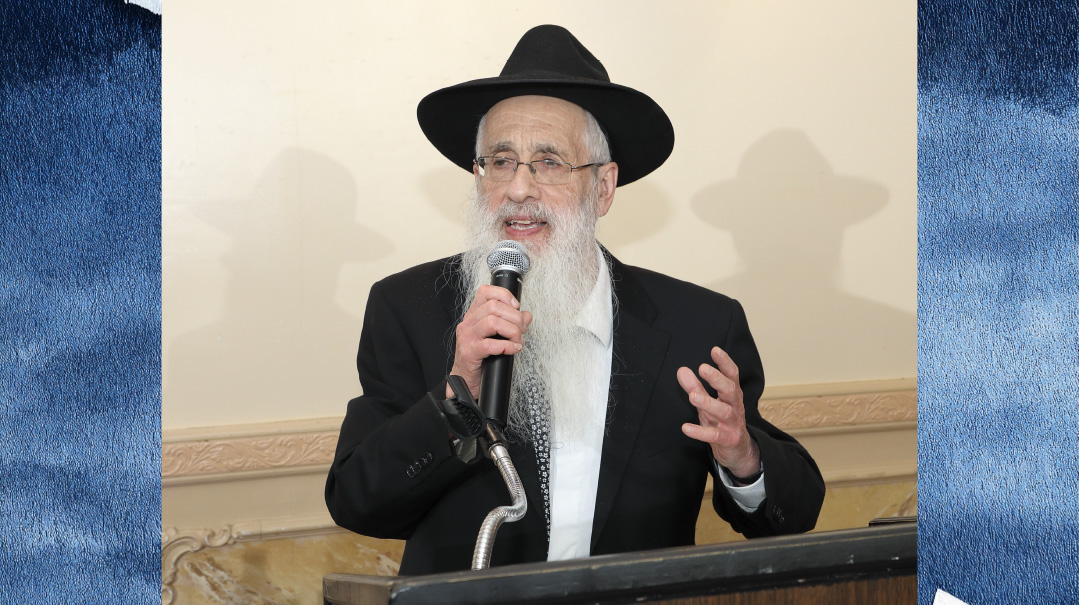Every Step of the Way
| June 14, 2022Houston's Andy Serotta pays tribute to his mentor Rav Michoel Bender
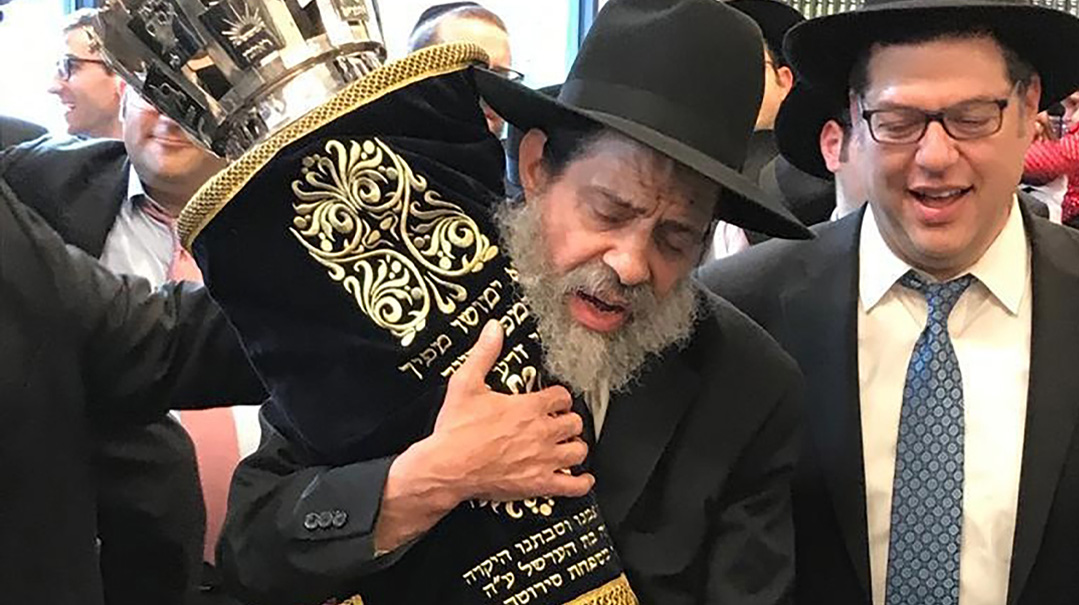
Everyone said he was a tzaddik from his youth, but I can only testify to the last 27 years, from the first time I met Rav Michoel Bender ztz”l. And what I saw was someone more angel than person. His brother, Darchei Torah Rosh Yeshivah Rav Yaakov Bender, says that he doesn’t believe Reb Michoel ever did a sin in his life. I can’t verify that, but what I know is that everything that my family and I are, our Torah outlook and direction in life, I ascribe to the merit of drinking from the pristine, pure fountain of Torah that was our beloved Reb Michoel, who passed away last week at age 71.
Reb Michoel was the legendary longtime mashgiach at Yeshiva Bais Binyomin (Stamford Yeshivah, which moved to Monsey several years ago) and one of the hidden tzaddikei hador, who spent his life as an extraordinary oved Hashem, staying under the radar with his acts of chesed and deep humility.
Reb Michoel was a son-in-law of the late Stamford Rosh Yeshivah Rav Simcha Schustal; and son of Rav Dovid Bender, master mechanech and longtime menahel in Torah Vodaath, and Rebbetzin Basya Bender, one of the first students of Sarah Schenirer in Cracow and a pioneer of the American Bais Yaakov movement.
My wife, Stephani, and I began married life together in 1994 as relatively new baalei teshuvah in Boston. I was an investment portfolio manager at the time and had been working for the Boston Company, when my division dissolved and partially reorganized in Stamford, Connecticut. We were concerned that the community where the company had relocated wasn’t strong enough for us newcomers.
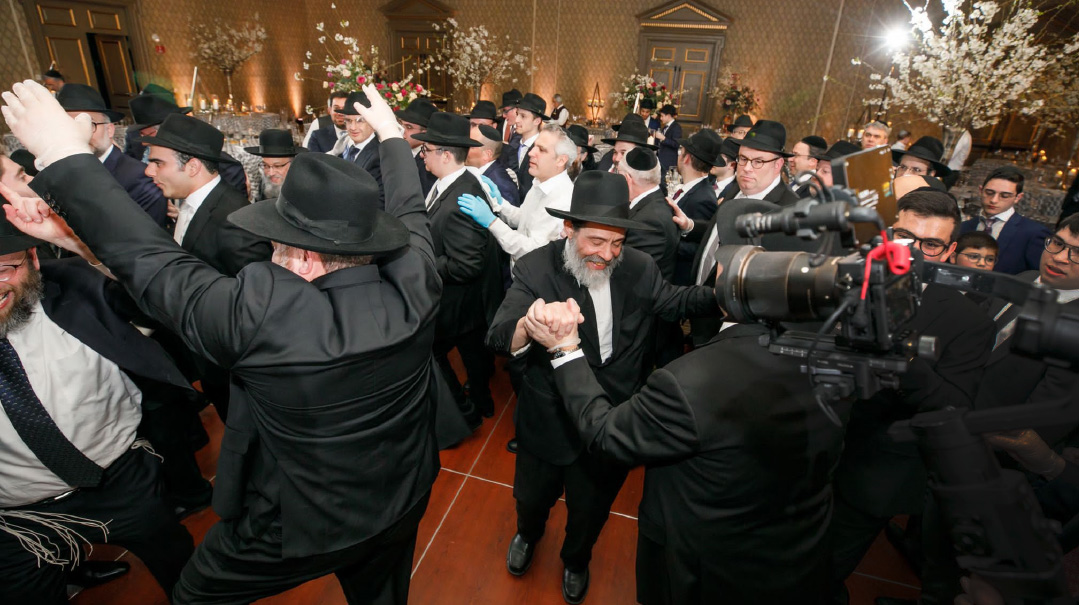
Reb Michoel grabbed me for a dance at my daughter’s wedding. I was an unlikely talmid, but Reb Michoel never let go
In Boston, I had become close to Rabbi Dovid Moskovitz, rav of Congregation Chai Odom in Brookline. “Just hang on to the yeshivah in Stamford,” Rabbi Moskowitz advised.
Although one might think the very yeshivish Stamford Yeshiva would have been intimidating for a new baal teshuvah, Reb Michoel — who literally felt the Ribbono shel Olam at his side every minute of the day — became my rebbi.
I was an unlikely talmid at the time, not one of the yeshivishe bochurim or avreichim who made up the core of Bais Binyomin.
I would learn with Reb Michoel for an hour and a half after davening every Shabbos. We never opened a sefer, I just asked him questions, questions, and more questions. Because when you have the opportunity to learn with a malach, you should bring all your questions to make the most of the opportunity. He gave me his pure hashkafos on everything from keeping Shabbos to professional sports.
At the advice of Rav Noach Weinberg, rosh yeshivah of Aish HaTorah, we ended up moving to Passaic, where there was a larger Jewish community. After seven years there, and with the advice my rav, Rav Menachem Zupnik, I took a prominent oil trading position in Houston, and our five-year Texas plan turned into 17 — we’re still there, having built a kollel and helping turn Houston into a real makom Torah. And Reb Michoel was with me every step of the way.
One evening when I was having a hashkafic difficulty over a particular issue, Reb Michoel called me at 10:30 p.m. (11:30 p.m. EST) to begin speaking to me about the subject. Two hours later, at 1:30 a.m. his time, he asked if he could put me on hold for just a moment. Thirty seconds later he came back on the phone and apologized for keeping me waiting, he just had to take a brief call from his wife who had called to make sure he hadn’t fallen asleep again at the yeshivah, as she was still waiting for him to come home for supper. I’m still shocked when I think of this: how Reb Michoel Hatzaddik, who normally ate dinner after 12:30 a.m. but would sometimes fall asleep learning at the yeshivah, was keeping his tzadeikes of a wife waiting, with her permission, to help me work through an issue.
The stories of Reb Michoel’s sensitivity and tzidkus are without end. There is a well-known halachah that one should escort his guest at least daled amos on his way. When I would take leave of Reb Michoel after a visit, he would not only walk me to my car, but he would then escort my car for at least another 10–15 feet as I drove away. When we stayed at his house, he would escort me to my room each night. And if, for any reason, we ended up walking back out to continue our conversation, he would escort me again to my room. One time I subtly tried to walk back and forth a few times, but he never missed a beat and escorted me each and every time back to my room. It was a pure gesture showing how much he cared.
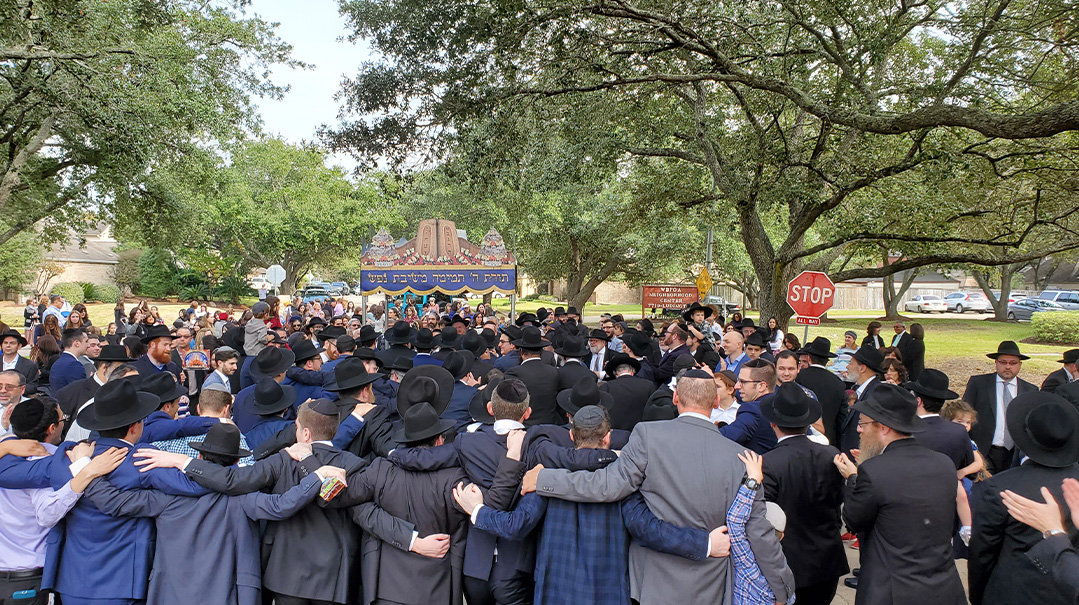
At a hachnassas sefer Torah for the Kollel of Houston, a satellite kollel of Lakewood.
His emunah in the Ribbono shel Olam was beyond anything I’d seen, yet he’d often tell me that “emunah is something that needs constant chizuk,” and it seems that was among his life’s biggest avodahs. Having lived through more than his fair share of difficulties in life (even though he insisted that he never had any difficulties in his life, that the Ribbono shel Olam had only given him brachah in every aspect of his life), he was an expert in spotting when other people were going through tough times, and what message they needed to hear to get through it in the best way.
As part of my ambitious plans to build the Torah community in Houston, I started my own hedge fund in 2009. One of the most challenging periods in my life was in late 2014 when my fund was on the verge of collapse. Even without my asking, he sensed that I needed extra chizuk, and he called me every single day, sometimes twice a day. When someone is going through a tzarah, one’s usual response is, “Don’t worry, it will work out for the best,” and what they mean is, “We really feel bad for you, and we hope everything works out okay.” But when Reb Michoel used the same words, they carried a completely different meaning. “Don’t worry, it will work out for the best” actually meant there was nothing to worry about! He said, “You have nothing to worry about. You are just an employee working for the Ribbono shel Olam. You go into work each morning, you turn the lights on, you do the best you can do, and then you turn the lights off and go home to eat dinner with your family.” He spent hours and hours getting me through this extremely stressful period in my life. In the end I had an open miracle, and the company turned around, and I genuinely believe it was Reb Michoel’s brachos and tefillos that got us through this most difficult period. I only hope that I can emulate my rebbi in the future by helping others when they go through their own nisyonos.
Reb Michoel’s humility was unparalleled. Any time I asked him a question, his response would start with, “Well, Andy, you should really speak with someone bigger who knows such things. But if you want, we can talk in learning,” and then he would spend as long as it took to flesh out the issue and get to the heart of the matter. If anyone ever asked him for a brachah, he would say, “Why are you asking me for a brachah? I’m nothing. But, then again, they say there is even value to the brachah of a goy, so I guess I’m not worse than that.”
He always walked slightly stooped over, in a position of true humility. I’ve even heard people say that he looked like the Chofetz Chaim. If this comparison was true, it was only that his genuine humility manifested itself in a similar outward appearance.
One time I asked Reb Michoel about tearing kri’ah for a relative’s passing. Thinking it was something destructive to a piece of clothing, I said that it seems to make sense to wear some old or unwanted garment, since you’re going to effectively destroy it. Reb Michoel said, “You know, Andy, some people actually put on their best suit to tear kri’ah.” There is the transgression of bal tashchis (not wasting), but the mitzvah of tearing kri’ah supersedes that. When I was told of Reb Michoel’s passing, I was wearing my favorite shirt. Needless to say, I did not hesitate to tear it. May his pure neshamah enjoy its place right next to the Kisei Hakavod and may he be a meilitz yosher for us all.
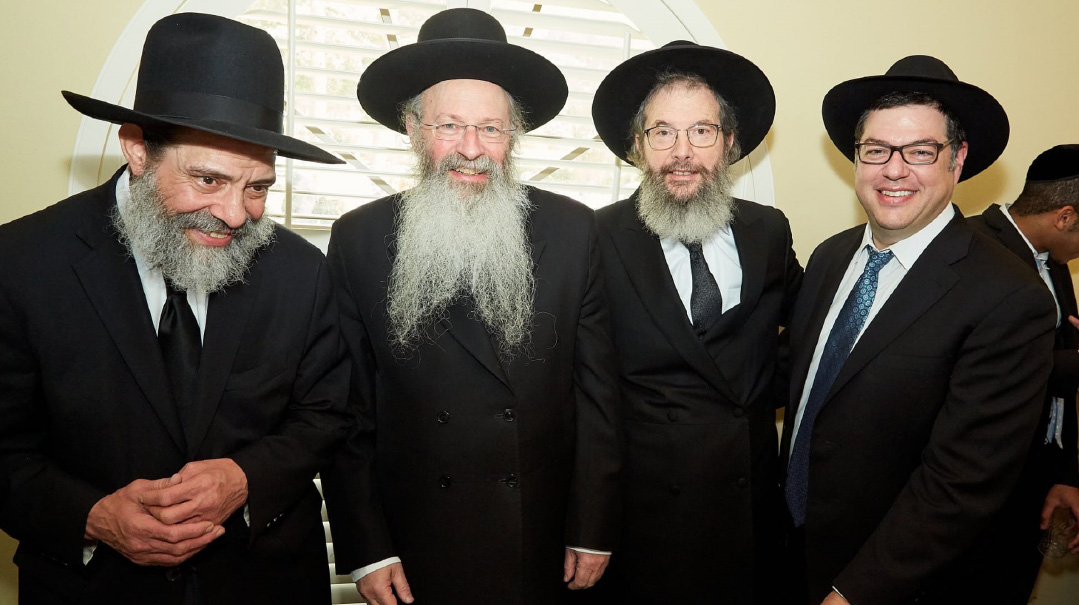
(From left) Rav Michoel Bender ztz”l, BMG rosh yeshivah Rav Malkiel Kotler, Rav Menachem Zupnik, and myself: I knew I’d never go wrong following the advice of my rebbeim
Andy Serotta is a Harvard graduate and former chess champion who grew up in Pennsylvania and became a baal teshuvah with his wife, Stephani, in the mid-1990s. A commodity trader by profession, Andy is also a civic leader and philanthropist whose major accomplishments are the building of the Kollel of Houston, founding the Torah Girls Academy high school, and helping to start a new mesivta. He and his wife credit everything they have done to the rabbanim who have guided them, and especially to Andy’s rebbi muvhak, Rav Michoel Bender.
(Originally featured in Mishpacha, Issue 915)
Oops! We could not locate your form.

